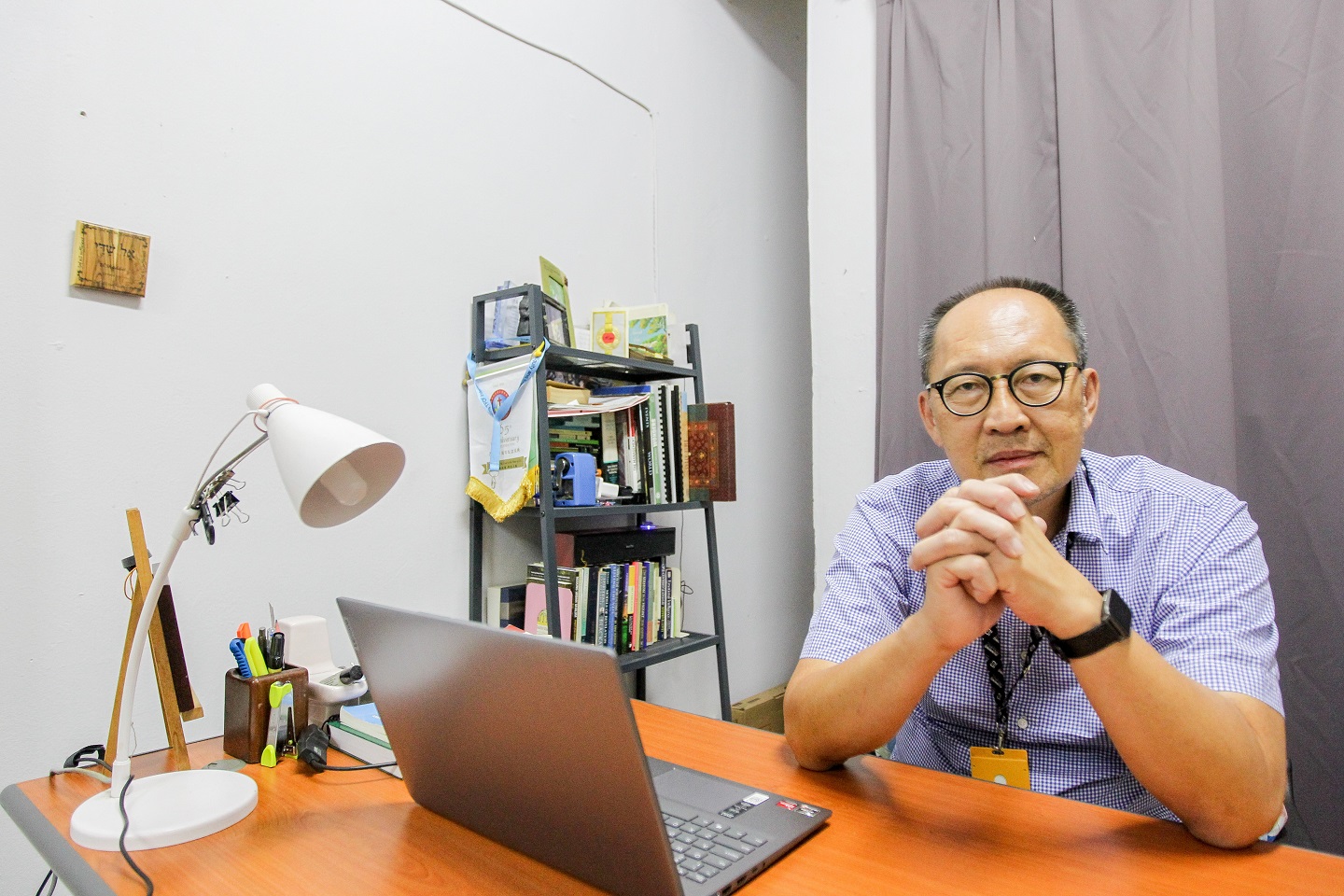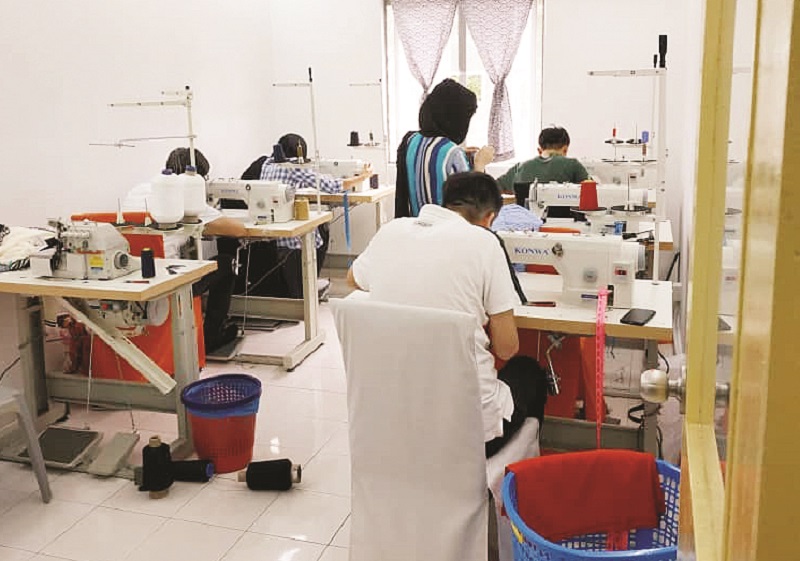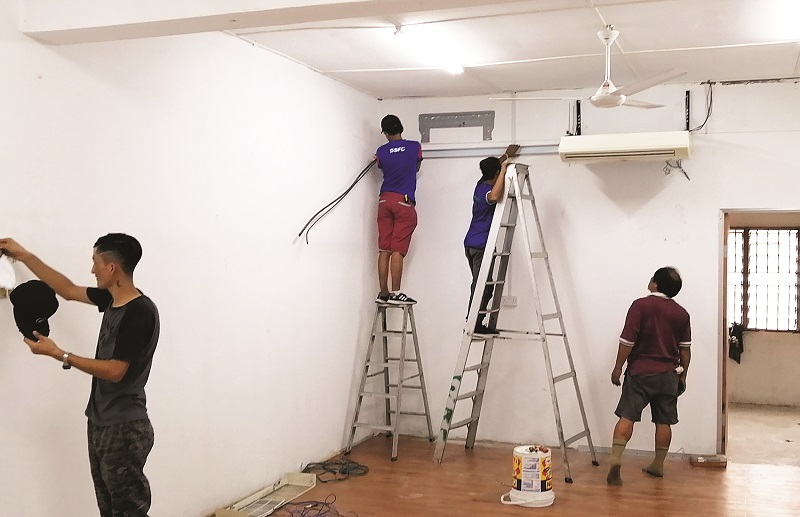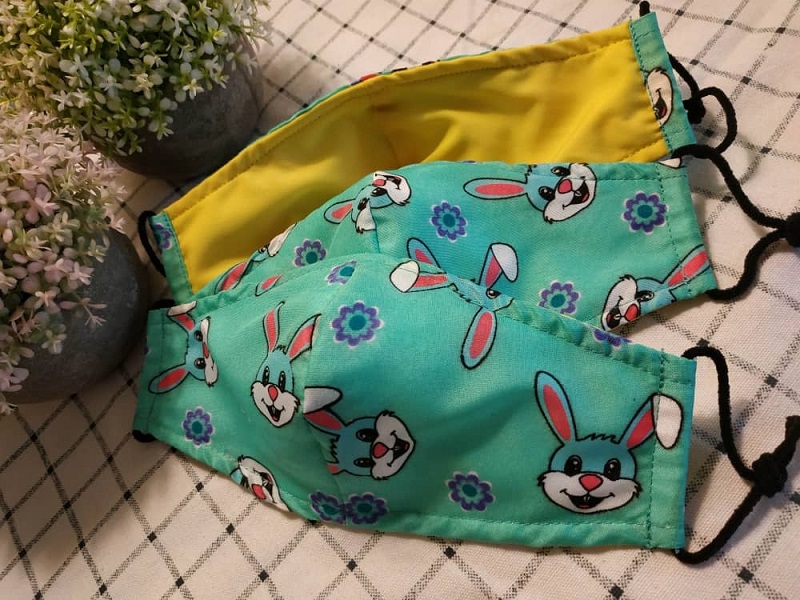
Ng feels that training teachers within displaced communities helps empower them (Photo: Shahril Basri/The Edge)
When you get to a certain age, you start asking yourself: Does it make any difference if I make another million? If I want to make good use of my life, how can I contribute to society, and which areas need it the most?” These were the questions that led self-employed trader Andrew Ng to start the Christian-based humanitarian non-governmental organisation (NGO) ElShaddai — which in Hebrew translates into “God Almighty” — in 2008.
The NGO aims to help the displaced and marginalised communities in Malaysia, mainly undocumented and stateless individuals, with a focus on education. “ElShaddai was set up with the purpose of working in close collaboration with the United Nations High Commissioner for Refugees, offering education for refugee children. And in the process of providing education from primary up to secondary level, we began to realise that many of them have a lot of good skills, but will never have an opportunity to express themselves because they are non-Malaysians … Our centre started with 22 students, and we now have almost 2,000,” Ng says.
As religious buildings are said to be one of the most underutilised structures — mostly because individuals come once or twice a week and usually on fixed days like the weekend — Ng found the perfect location to hold classes. “We talked to churches and they let us use [the space] from Monday to Friday. It helped us save a lot of money. We also help local volunteers and community teachers who already have some form of education by equipping them so they can teach,” he adds.
sewing_centre_2.jpg

As stateless migrant workers are undocumented, it is difficult to know how many of them are in Malaysia. Ng recalls the human resources minister in 2017 estimating that there were 6.7 million migrant workers in our country, but he believes that there may be even more. Training teachers within these displaced communities helps empower the community, he feels. “Community development has to have three things in place: It must be easily duplicable; be very lowcost; and be something that can perpetually run by itself and shouldn’t need you,” he says.
To further empower and help these marginalised communities, four years ago, Ng started the social enterprise arm of the NGO, named Life2Life. “Its purpose is to help the community make money,” he states simply. Life2Life uses the Asset-Based Community Development (ABCD) approach, which recognises and utilises skills and interests already in place, develops them and nurtures them so that they can be self-sustaining. True to this approach, Life2Life is run mainly by individuals from the marginalised communities that ElShaddai works with.
When asked about Life2Life’s current projects, Ng mentions his distaste for the word. “A lot of NGOs want to do a ‘project’, which means they have three years and they put in the money for three years. When the money’s gone, the project stops. It cannot sustain this way. We are there as an ongoing process, because life is ongoing,” he explains.
One of the main services Life2Life offers is in air-conditioning repair. “Not all students are well suited for education, so after a few years of basic education, we provide them with air-con electrical training. They will be taught six months of theory, followed by a six-month internship for practical training. Within a year, they will be good enough to go out and survive on their own,” says Ng.
aircon_repair_and_servicing_2.jpg

Life2Life also runs an urban fish farm and grows fruits and vegetables. “A small plot of land was donated to us and we use it to provide jobs for the refugees. For the urban fish farm, we use the latest technology to breed a large amount of fish in a very small area. If you have about 5,000 to 7,000 fishes on the cycle, you should be able to survive and feed a few families. We also have rows and rows of bananas and have started growing tropical grapes.”
Seeing that many in the community have a talent for tailoring, Life2Life actually began with that skill. “A lot of them do tailoring work but they mainly sew school uniforms, which do not make a lot of money. We tell them that we are in it for the long haul. We invest in the machine and teach them how to use it right, but we always tell them: we are not going to do it for you, we’re going to work with you,” Ng says.
In a few years, Life2Life was providing expertly sewn products, such as bags and purses, to high-end boutiques. When the pandemic and the ensuing Movement Control Order came into effect, Ng was initially worried. “We thought okay, we’re finished. We did not think we would survive. Surprise of all surprises, that was the time we made the most money — during the lockdown.”
product-mask.jpg

During the first year, there was an incredible demand for personal protective equipment (PPE) and tailors able to make them were highly sought after. Life2Life’s tailors worked hard to meet the demand. A few months down the road, corporate companies approached the social enterprise to produce face masks. Recently, boutiques and its older clientele have restarted production and developed the online part of their businesses. Life2Life also sells a range of bags, masks and headbands on its newly launched website.
Having been around for 14 years, ElShaddai is able to see an impact on the communities it works with. “We have students who have just completed their IGCSEs with flying colours. They will now become the teachers, going back into the community. You must create a critical mass so it can reproduce by itself, but someone has to get it started. If we continue to do it this way, in time to come, we can multiply the effect,” explains Ng. Just last year, ElShaddai signed a memorandum of understanding with a British education service provider to give students vocational training, which will result in qualification recognised by the UK certification panel. This gives exceptional students the opportunity to get work permits overseas.
While developing its current ventures, Life2Life is also negotiating with a few large grocers to produce their shopping bags. Still implementing the ABCD approach, the social enterprise continues to be about the process and being there for the long haul. “We’re always looking for avenues to see how to continue business for these communities so they can at least make an honest living. Human life is a process; a process is ongoing,” concludes Ng.
This article first appeared on Feb 21, 2022 in The Edge Malaysia.


